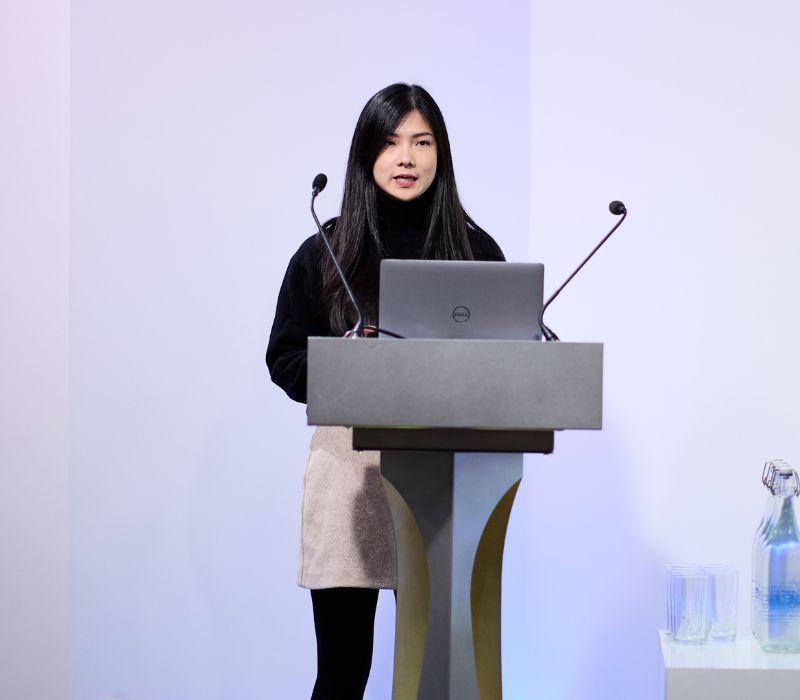
TRANSNET celebrates INWED 2023 – Q&A with Sasipim
As part of our INWED 2023 celebrations, we have planned a series of blog posts to showcase and champion our fantastic female students and researchers. Starting off the series, we have our PhD student, Sasipim Srivallapanondh whose research specialises in neural network-based optical equalizers.
National Women in Engineering Day is an international awareness day introduced by the Women’s Engineering Society (WES) to support, inspire, and raise the profile of women in engineering. Launched in the UK on 23 June 2014 to celebrate its 95th anniversary, it received UNESCO patronage in 2016 and went global for the first time in 2017 adopting its now familiar moniker, INWED.
Here, Sasipim talks about her personal experiences in engineering including her thoughts on what the future looks like for female engineers.
Please provide a summary of your background, and what your research entails.
I obtained my bachelor’s degree in electrical engineering, majoring in communications from Kasetsart University, Thailand with one academic exchange year at National Chung Hsing University, Taiwan. Later on, I was awarded an Erasmus Mundus Joint Master’s Degree Programme scholarship. I graduated with an MSc degree in Smart Telecom and Sensing Networks with Distinction from Aston University, UK, and National and Kapodistrian University of Athens, Greece. Currently, I am pursuing my PhD supported by the EU Horizon2020 at Aston University with the research topic of Complexity reduction and data augmentation for deep machine learning-based optical transmission systems. I mainly focus on neural network-based optical equalizers.
What motivated you to pursue engineering?
I have seen my father working as an engineer for my whole life. He seems very passionate about his job and that makes him looks very cool. He told me about his fun and great experience at the Pre-Engineering School which is a vocational school only focusing on engineering. Therefore, I decided to enter the same school, just expecting to have a fun experience like him. In the end, it turned out that I really enjoyed studying engineering because of all the practical classes I had.
Have you faced any challenges as a young woman in engineering? How did you overcome them?
Since my Pre-Engineering School, around 70% of the students were male. The only challenge, I thought I could not do as well as my other male classmates, was the tasks related to physical strength, for example, cutting the metal workpiece using a hand saw. But my classmates have been a great help. Other than that, my experience in engineering has been great. I have definitely faced some challenges in my studies, however, I have never thought that it was because of my gender. I think the best way to overcome challenges is to always bear in mind that you can do it and never be afraid to ask for help if you need to, regardless of your gender.
Do you have any positive role models or mentors in engineering that you look up to?
My father is my positive role model in engineering, I am very lucky growing up and I have never heard him say that because I am a girl, I can’t do engineering. On the other hand, he has taught me to do all the tasks that many people might have thought that they were for the boys such as fixing some stuff at home. The most important thing is the mindset of the model or the mentor. A positive mentor for me is a mentor who is supportive and understanding. This will unleash the creativity and productivity of the mentee.
What do you think the future will look like for women engineers?
I think we will see more and more female engineers in the future. With various campaigns that encourage women in STEM, it promotes the opportunities and the support that women can have. With the growing number of female engineers, that would create a more comfortable and diverse work environment. Even though I believe in equality between genders and I feel rather comfortable working with male colleagues, I can’t deny that I would like to see more women working in engineering to see more gender diversity.
Finally, what advice you give to young girls and women who are interested in engineering?
I would like to tell them to go for it and it’s fun. It might sound scary for some girls to be working and surrounded by male colleagues, but from my experience, the male colleagues have been very helpful and respectful. In addition, now there are various organizations that support and promote women in STEM, you can reach out to them for more information on how they can support you.